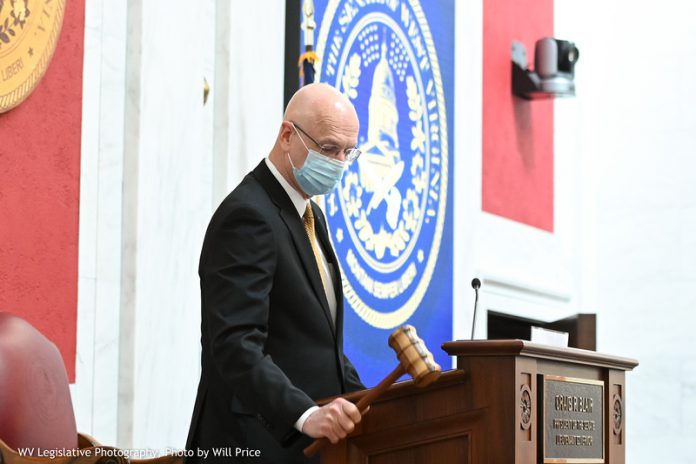As of Friday, February 26, 2021, 459 bills have been introduced to the Senate. Of those bills, 34 have passed and advanced to the House.
Senate Bill 1 provides for uniformity of payment for telehealth services between a service in-person and a service provided through a telehealth platform. It also permits for the physician patient relationship to be established through audio-only means and sets forth additional standard of care criteria.
Senate Bill 7 places a limit on the political activity by public employees.
Senate Bill 9 continues the Licensed Racetrack Modernization Fund.
Senate Bill 10 modifies the due date of the racetrack table game renewal license fee from July 1 to October 1.
Senate Bill 11 declares any work stoppage or strike by public employees to be unlawful. It prohibits the use of accrued or equivalent instruction time to cancel days lost due to a concerted work stoppage or strike. It prohibits a superintendent from closing a school in anticipation of or to facilitate a concerted work stoppage or strike
Senate Bill 12 allows for the removal of local health board members by county commissions or municipalities. The bill also requires a thirty-day public comment period for rules of local health boards. The bill also places local health departments under the control of the state health officer when a state of emergency is declared within that county.
Senate Bill 14 provides additional options for alternative certification for teachers.
Senate Bill 15 provides the incentive for teachers to earn a master’s degree in education of a salary increase.
Senate Bill 34 creates an exemption in the state sales and use tax for the rental and leasing of equipment among commonly owned companies.
Senate Bill 42 authorizes a municipality to begin a court proceeding in the county of an abandoned property to compel a foreclosure to better address the “zombie properties” that are plaguing communities within the state.
Senate Bill 61 expands the Coyote Control Program.
Senate Bill 66 creates a WVU Rifle Team Check-Off Program on hunting and fishing license purchases.
Senate Bill 67 relates to the authority of the Emergency Medical Services Advisory Council.
Senate Bill 69 creates “Choose Life” special registration plate supporting adoption.
Senate Bill 78 corrects erroneous cross-references within the section of code relating to factors considered in awarding spousal support and separate maintenance.
Senate Bill 79 provides that if a custodial parent proves that relation is for a legitimate reason, the location of the move will be presumed to be reasonable. To overcome this presumption, the opposing parent must prove that the purpose of the move is achievable without moving or by moving to a location that will not disrupt the opposing parent’s relationship with the child.
Senate Bill 81 corrects certain cross-references with the West Virginia Uniform Trust Code relating to the standards governing trust directors and directed trustees.
Senate Bill 89 exempts certain private school kindergarten and preschool programs from registration requirements.
Senate Bill 126 authorizes the Department of Administration to create legislative rule relating to purchasing.
Senate Bill 140 authorizes the Division of Rehabilitation Services to create legislative rule relating to the Ron Yost Personal Assistance Service Act Board.
Senate Bill 156 authorizes the Fire Commission to create legislative rule relating to the standards for the certification and continuing education of public sector building code officials, inspectors and plans examiners.
Senate Bill 182 allows the Commissioner of Agriculture to create legislative rule relating to animal disease control.
Senate Bill 216 authorizes the Department of Commerce to create legislative rule relating to tourism development.
Senate 244 makes it unlawful for public utility to prohibit customers from hiring contractors o construct, install, or maintain connections to public utilities.
Senate Bill 270 provides for the collection of the hotel occupancy tax by marketplace facilitators.
Senate Bill 272 simplifies criteria used to define independent contractors and imposes objective standards on the differences between independent contractors and employees.
Senate Bill 275 creates an Intermediate Court of Appeals.
Senate Bill 277 – the Covid-19 Jobs Protection Act – provides immunity from civil liability for damages for an injury resulting from exposure to COVID-19 on the premises owned or managed by another person, so long as that person was acting in compliance or consistent with applicable federal or state regulations, an Executive Order of the Governor, or other such guidance.
Senate Bill 280 allows West Virginia residents and businesses to pay taxes and fees for government services online in all 55 counties. It requires all county and local governments, as well as state government, to begin accepting payments electronically on a platform set up by the state treasurer’s office.
Senate Bill 293 clarifies that the Economic Development Authority is not authorized to enter into banking contracts without the State Treasurer approval.
Senate Bill 295 provides for maximum drawdown of federal dollars for broadband expansion by increasing the amount available for loans for broadband deployment issues by the Economic Development Authority.
Senate Bill 296 relates the repeal of unauthorized or obsolete rules.
Senate Bill 372 provides greater discretion to the WV Board of Medicine to approve graduate clinical training.
Senate Bill 396 limits on nuisance actions against fire department and EMS fixed sirens.

